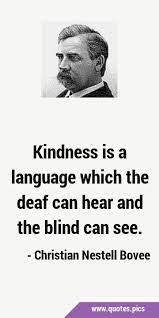
The other day, someone told me that they had noticed that a lady in their building constantly sat inside the doorway and smoked. The building is non-smoking, as my friend noted, with signs next to where the lady was smoking. My friend reminded the lady that the building was non-smoking and her response was immediate aggression. She then told him that she was having a ‘bad day’ and asked if he ‘wanted to make it worse’. My friend noted that there were children in the building who have breathing problems and the smoke makes them worse. The lady replied that she also had a child…
From the way that I was told the story, in a very dry matter-of-fact manner, I believe that it took place as it was told. And quickly we are given a portrait of someone doing something that they know is wrong. My friend said that his expectation would be that the lady would admit that she was wrong and show the least remorse, but, instead, immediately went on the offensive and started playing the victim. As we have said before in these pages, often a sign of being a perpetrator is playing the victim. In this instance, I was told, if she had stood up and taken two steps, she would have been outside, yet instead of this, she decided to play both the aggressor and the victim.
In 1979, Christopher Lasch wrote a book called The Culture of Narcissism: American Life in an Age of Diminishing Expectations. In the book, Lasch argues that narcissism has become normalised so much so that society itself functions as a haven for those with narcissistic personalities. Although Lasch’s premise is that it has only happened post-World War II, in these pages prior, we have looked at how the shape of society now was set in the early ages of Western civilisation, with the Greeks and the Romans. We have also looked at examples of people who have challenged this culture and how they would then get nailed to a tree for shining a light on the failings of society. And so, to talk about how the narcissistic culture stems from personal weakness would be redundant, merely repeating myself. However, the second aspect of the title of Lasch’s book is something that we should look at.
Expectations. Now, when one speaks of expectations one can delude one’s self into thinking that society should be like Plato’s Academy (removing the predominant lack of equality, of course) yet this is as foolish as it is unrealistic as an expectation. Rather, one should be more realistic. The simplest things in life are often the hardest. Being kind is, on the face of it, very simple. If you see someone, say hello. If you’re having a ‘bad day’ realise that the other person may also be having a ‘bad day’ and refrain from making it worse. The cry of ‘misery loves company!’ is, as we have said, erroneous, for if misery is in an absolute state, then it would be happy as it is and would enjoy being miserable. Likewise, if it is a state in flux, then it would prefer things which elevate it to a state of not being miserable. Rather, what the saying really means is that people who are miserable, know that to ty to be happy is hard and so, instead of trying, they want everyone to feel like they do. This, ironically, is counterproductive because, a) if you make someone feel bad, you still feel bad and b) someone who may have been able to help you feel happy will now be less inclined to do so. As is written, we often reap only that which we sow. The reason for these behaviours is simple. They are easy. It takes no self-effort, either in thought, reflection, or action, to play the victim and to lash out at those who show our faults. One aspect of Lasch’s book which is key is how the society which is narcissistic and has low expectations all stems from the individual and so, if you wish to elevate society, one must elevate their self. One must have higher expectations of their self. By this, I don’t mean that one should expect one’s self to always ‘turn the other cheek’ and refrain from anger at opportune times, rather, I mean that one should think, just a little, about their self and others- about who they wish to be, about how nice it is when people are kind to them. Then, maybe, simple things such as being reminded that they should not smoke in a non-smoking area will seem like less of a personal attack which may wound them deeply, and, rather, be an opportunity for them to follow the law, and, more importantly, be kind.
‘till next time


